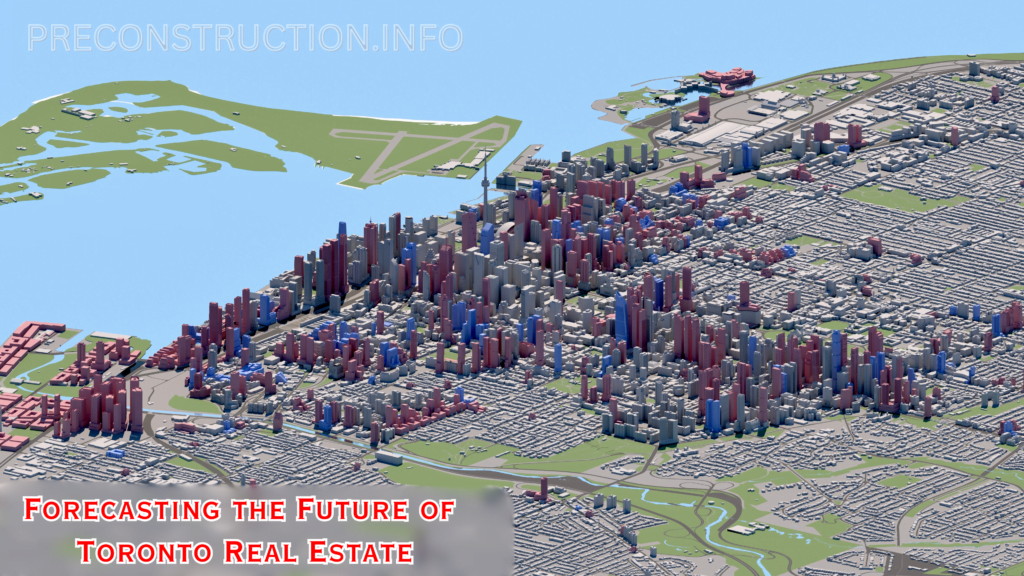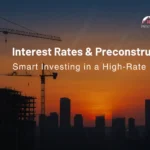The Toronto real estate market has captivated headlines for years, with prices seemingly on an endless upward trajectory. But what fuels this growth, and what does the data truly reveal? This comprehensive analysis delves into the heart of the Toronto market, exploring key trends that are shaping its future and empowering you with insightful knowledge.
Decoding the Rise of Toronto Real Estate
Toronto’s vibrant real estate scene has been a longstanding fixture, but recent years have witnessed a surge unprecedented in the city’s history. This phenomenal growth can be attributed to a confluence of factors:
Low Interest Rates: Record-low interest rates have significantly increased buying power, making homeownership more attainable for many. Affordable mortgages allow buyers to stretch their budgets further, contributing to rising demand and ultimately, higher prices.
Economic Powerhouse: Toronto boasts a robust and diversified economy, attracting talent from across the globe. This influx of professionals seeking career opportunities fuels the demand for housing, driving a positive feedback loop in the market.
A Booming Population: Toronto’s population is constantly expanding, driven by immigration and young professionals seeking a dynamic urban environment. This growth creates a continuous need for more housing units, further tightening supply and pushing prices upward.
Scarcity of Inventory: The construction of new homes hasn’t kept pace with the rapid population growth, leading to a limited supply of available properties. This scarcity further intensifies demand, driving prices higher in a competitive market.
Navigating the Numbers Jungle
To truly understand the current state of the Toronto real estate market, let’s delve into some key statistics:
Soaring Prices: The average selling price for homes in Toronto has witnessed a staggering 10-15% increase year-over-year, reaching a new record high. This surge is a direct result of the robust demand and limited supply in many coveted neighborhoods.
Resilient Sales Activity: Despite the challenges presented by the global pandemic, sales activity in Toronto has remained remarkably strong. This resilience showcases the city’s unwavering appeal to homebuyers and its ability to weather economic fluctuations.
A Cautiously Optimistic Future: Experts project the Toronto real estate market to continue on a growth trajectory, albeit at a more moderate pace. Factors like rising interest rates and government policies aimed at cooling the market might influence future growth, but the overall outlook remains positive.
Beyond the Numbers: Emerging Trends
While the statistics paint a clear picture, there are vital underlying trends to consider:
Shifting Buyer Priorities: The pandemic has significantly impacted buyer preferences. Homes with dedicated office spaces, outdoor areas, and access to green spaces are increasingly sought after. Functionality and adaptability are key priorities for homebuyers in the post-pandemic era.
The Rise of the Suburbs: Downtown Toronto’s high prices are pushing some buyers to explore the suburbs. These areas offer more affordable options, larger living spaces, and a more family-friendly environment, attracting a new wave of residents.
Pre-construction Market Boom: With a limited supply of existing homes, the pre-construction market is thriving. Buyers are increasingly opting for off-plan purchases, locking in future prices and securing their place in high-demand areas.
The Evolving Role of Technology: Technology is transforming the real estate landscape in Toronto. Virtual tours offer a safe and convenient way to explore properties remotely, while online platforms are simplifying the search process and connecting buyers with agents more efficiently.
Building a Strategic Approach
Understanding the market dynamics empowers you to make informed decisions in the exciting yet complex world of Toronto real estate. Here’s how you can navigate strategically:
Know Your Budget: Define your budget early on to understand what type of property is realistically attainable. Consider potential future expenses like maintenance and property taxes when setting your budget limits.
Do Your Research: Thoroughly research different neighborhoods to understand the price trends, amenities available, and overall livability factors. Consider factors like commute times and proximity to schools when deciding on an area.
Work with a Reputable Realtor: A skilled realtor can provide invaluable insights and guide you through the entire buying or selling process. Their expertise in market nuances and negotiation tactics can significantly benefit you.
Stay Informed: Market conditions are constantly evolving. Maintain awareness of current trends, interest rate updates, and government policies that might impact the market. Resources like real estate blogs, industry reports, and market data provide valuable knowledge.
Beyond the Horizon: A Long-Term Perspective
Toronto’s real estate market is a dynamic entity, shaped by economic trends, demographic shifts, and government policies. While the future holds a degree of uncertainty, the fundamental factors fueling the market’s growth remain strong.
For long-term investors, Toronto real estate presents a compelling opportunity. The city’s economic stability and burgeoning population create a foundation for sustained market growth.
Discover the latest trends in luxury Miami condos at Brickell Sold, and explore professional real estate photography services in Toronto with Click Media Pro. For comprehensive updates on Canadian real estate developments, visit Wedu and the Wedu Blog. Stay informed about the pre-construction market by visiting Preconstruction Info.







